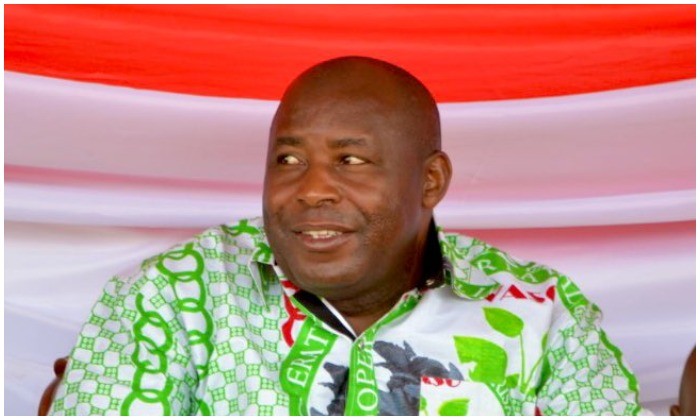Anxiety as multiple admissions, student backlogs frustrate law graduates
Following the recent ban placed on Baze University by the Council of Legal Education, AMARACHI OKEH writes on how universities exceed their approved quotas and how this creates a chain of backlogs that keeps students from being certified to practice law in the country
The unsettling feeling clutched at Ihuoma Chime’s chest like a common cold. Her disappointment could not be hidden even as she tried hard to hide it from those who asked why her countenance had changed.
Chime, a 22-year-old native of Orlu in Imo State, had always wished to build a career in property law, but after spending five years at the university and graduating from the Faculty of Law in 2021, she was unable to practice what she studied.
Despite graduating from Base University in Abuja two years ago, the consequences of the institution’s administrative decision are still haunting her.
“It was not my fault,” she emphasised to our correspondent. Her alma mater has not yet mobilised her for the mandatory one-year law school programme she was supposed to go through to be certified to practice law in the country.
Chime is one of the 347 victims of the school’s alleged non-compliance with the Council of Legal Education’s recommendation to admit only 50 students per session by Baze University.
Hanging onto a thread of uncertainty, and being unsure of when she might be mobilised for the mandatory one-year law school education, Chime’s parents decided that idling away at home was useless. She enrolled for her master’s and in the same year, she completed her one-year National Youth Service Corps programme.
But with her NYSC certificate, she is still unable to begin her law career. With no job in sight, she has now resorted to acquiring a new skill, which she hopes to use in the meantime before law school calls.
She narrated her frustration to our correspondent, “We were over 80 that were admitted in 2017 and graduated in 2021. After graduating, we started asking about mobilisation for law school, but nothing came out. We had no clue as to what was going on. The school was telling us different stories. Any time we went there, they would tell us that the law school had not asked them to send names and that they would inform us when they would be mobilising. It was only when the press release (about the ban of the school’s law faculty) came that we knew what the issue was.
“The school didn’t even reach out to us when the press release came out. It was from the press release that we saw that the council said they’d start allowing students affected by the backlog to enrol for law school.”
For Chime, the backlog issue with the school started with the 2019 set. She also revealed that no one from her set and the set after had been mobilised for law school. “It is just recently they approved about 80 names, but none of my set members went to law school immediately after we finished.”
Expressing how the two-year wait for mobilisation for law school has made her feel, she said, “It is really devastating. We were looking forward to going to law school immediately after graduation. I had to do my master’s while waiting for law school. That is what made it less devastating. I have stayed at home for one year. I have been preparing in advance for law school and I just started learning a skill,”
Unlike Chime, who is still hoping to be mobilised for law school any time soon, some of her course mates have already left the country to chart new paths as they cannot bear to remain redundant with a degree they cannot use.
It was learnt that Baze University Abuja, having exceeded its quota by admitting over 750 students, a number that would have taken the institution 15 years to achieve, a five-year moratorium ban was imposed on its law admission for consistently violating the approved quota by the Council of Legal Education.
77 varsities accredited for law degree
The CLE was established by the Legal Education Act of 1962 and is exclusively responsible for the legal education of people seeking to become legal professionals.
According to Nigerianlawyersdirectory.com, the statutory function of the council is to accredit and approve law programmes in Nigerian universities, which will then determine the eligibility of law graduates for admission into the Nigerian Law School.
It also oversees the provision of one-year practical training at the law schools for the call to the Nigerian bar and the provision of continuing legal education.
Our correspondent gathered that law faculties were accredited by the CLE based on their facilities, lecturers and libraries available that could adequately cater to the number of students that would be admitted into the schools and subsequently into the law school.
While the issue with Baze University made headlines, it was gathered that some universities had over the years consistently defiled the quota given to them by the CLE, thus making it difficult for some students to enrol in the Nigerian Law School.
This year, out of the 264 universities accredited by the National Universities Commission, only 77 –private and public universities – have the CLE accreditation to offer law. The quota given to the 77 institutions ranges from 50 to 280 slots.
The 37 accredited law faculties in private universities account for 2,225 students; 24 state universities have 2,370 law students, while 16 federal universities have a population of 2,820 law students. Going by this, a total of 7,415 students are slated for admission into the six law schools in the 2023 academic session.
ABSU law students panic
However, some universities have deliberately kept admitting more than their quota.
This is the situation that Tare, a final-year law student of Abia State University has unknowingly found herself in.
According to her, the atmosphere has been quite anxious for the 232 final-year students of the school’s law faculty. This is understandable as the CLE approved only 130 students for ABSU, thus leaving an excess of 102 students to an uncertain fate.
The 500-level student revealed that she and her course mates were now trying their best to ensure that they were among those selected for law school next year, but there was only so much they could do.
She said, “It is only 130 persons who are eligible for admission this year to law school. Even last year, we learnt that only about 50 students from our faculty got admission into law school. Everybody is just scared that they might not be selected for law school next year.
“Those with good results too are not even sure of their stand right now. The question people are asking is who do you know?”
Tare, however, added that some of the people who formed part of the backlog were a result of their decisions.
According to her, some have gone to start families or do other things before coming back for law school attendance and are added to the backlogs that have yet to be cleared.
Another student, Prosper, told our correspondent that the students were in despair.
“None of us here know what we are doing here. We are just anxious and waiting. Nobody is sure of anything. The faculty has a lot of backlog from the past who they are yet to attend to; so the situation is somehow here,” Prosper said.
When the Dean of the Faculty of Law, ABSU, Prof Eze Ngwakwe, was contacted on Wednesday to explain what plans the school had for the excess students, he insisted that our correspondent should call back the following day, insisting that he would need to refer to documents before responding to inquiries.
When our correspondent called the next day as requested, he only said, “The university will handle the situation.”
Students lament exclusion from UNEC list
Meanwhile, at the University of Nigeria, Enugu Campus, about 70 students from the 2021/2022 set have yet to be mobilised for law school despite the 220 quotas given to the school.
Our correspondent gathered from some of the affected candidates that no student from the 2021 set was sent to law school after their graduation. Instead, their quota was used to clear off some backlogs as the school said the eight-month strike by the Academic Staff Union of Universities denied them the opportunity to write their exams and make it to the law school.
One of the affected students, Michael Uzoma, said he was frustrated by the school on how the case was being handled.
The student, who is currently undergoing the mandatory NYSC service programme, expressed disappointment that even after finishing the programme, he would still not be eligible to work, because without passing through law school, his degree would be useless even with his NYSC discharge certificate.
After waiting out a year and hoping they would be mobilised this year, he and his course mates were shocked to find out that they were relegated again and preference was given to those graduating in 2023.
“The year 2023 came and we were expecting that once the registration for law school opens, we would be registered but we discovered that our faculty was hurrying the current final year students who just graduated this year. Unlike previous years when law exams were taken in two weeks, this set took theirs in one week. They did their project immediately and when it was time for law school registration, we found out that the dean had sent the names of those from 2023, leaving those of us from 2021 out,” Uzoma added.
“Law school doesn’t work like that. Once a person graduates from university, they are entitled to law school and the class below us should wait for their turn because we waited,” he added.
Another affected student, simply identified as Nnanna, did not study law just for the sake of studying law, he had always desired to practice law. Unfortunately, even though he is undergoing the NYSC programme, he is still not able to practice despite being a graduate.
He told our correspondent that the school authorities decided to mobilise those graduating this year instead of clearing the backlog from the previous year.
“What happened was that as the application for this year started, the school authorities said the 2023 set was ready for law school; so, we had two sets ready for law school this year and since we had two classes ready, we expected that students who were first in line would be sent first, but that was not the case and the reasons are best known to the authorities.
“Instead of picking based on first in line, they picked based on grades, leaving those with lower grades out, but some people in our set made it and those with lower class grades didn’t make it.”
He lamented that the situation was demoralising and expressed fear that some of his mates might miss the next session.
Reacting to the students’ claim, the Dean of the Faculty of Law, UNEC, Prof Ifeoma Enemo, in a recent interview with a national daily was quoted as saying that there was no bias in the selection process as two-thirds of the slots were given to the 2021/2022 session and the rest to the current students, who just concluded their programme.
“To avoid any rancour or allegation of favouritism, selection of those to go was based on their Cumulative Grade Point Average. So, the 147 selected among that group were based on their CGPA, likewise the ones picked from the current set,” Enemo said.
Another recent graduate of Adekunle Ajasin University, who was recently mobilised for the one-year law school programme, Victor Akintobi, shared insight on what was causing backlogs for students.
According to him, the inability of the school to promptly compute students’ results means that the students become a backlog for the next year. Also, some delay law school to go for the NYSC so that they do not miss it as they will be over 30 years old if they do not enrol for the one-year service immediately.
“That means that during the period of law school, they are serving and when the set is done the next year, they’d go back to register for law school,” he added.
Competition wild – IMSU students
The school grounds shook with excitement as a sea of over 250 students in black and white from the Law faculty of Imo State University couldn’t hide their excitement after writing their last paper on December 15, 2023. The excitement was earned indeed for the prospective legal practitioners.
However, the excitement was short-lived because only 100 will make it to law school next year and the remainder will become their juniors in practice whenever they are lucky to be admitted into law school.
This unfortunately is not the making of the students or their desire, but solely that of the university because it exceeded the allotted quota by the CLE.
That is a reality Ucheoma, one of the recent graduates, has forbidden for herself. “Imagine on the call to bar a day when the 2025 set will be getting called to the bar and I will not be there, no way nah, that is not possible!” she declared.
Ucheoma said she had been preparing to make it to the bar with her set since she was admitted. She revealed that she was aware that the school took more than its allotted number, adding that her parents too were on her case to ensure that she does not miss the law school with her set.
She stated, “The competition is going to be wild. I have been working towards this since my 100 level; I cannot miss out at this stage. There’s nothing as sweet as finishing with your set.
“And you know in Law, anyone who gets called to the bar first becomes your senior, even if they graduated from the university after you. I don’t want that to be me, please.
“My parents are worried as well. My dad is always asking after my results just to make sure that I don’t miss my set.”
Another finalist, Sochi, told our correspondent that the situation was not fair, but that was what they found themselves in and there was nothing anyone could do about it. She puts the number of the finalists at between 270 and 279.
“I don’t know how they will do it,” she said. “They will still do the elimination process. You know so many factors come into play. Some people will make it; some people may go the following year. It is not fair but that is the system. They want to admit a lot of students and then we end up facing this problem.”
Meanwhile, a 400-level student told our correspondent that currently, there were close to 400 students in the penultimate level of the faculty.
Some universities overshoot quotas for financial gains – JABU Registrar
At Joseph Ayo Babalola University, the issue of backlog persists. According to the Registrar of the institution, Dapo Adeniyi, it overshot the quota of 50 students only once.
He stated, “We overshot the quota given to us when we started, not because of any financial gain, but because the year Law was approved, we had already admitted students so when the council came for resource verification, the letter they gave read that we must start recruiting students that particular year.
“Unfortunately, we had already admitted a year before then expecting that the council would visit that year but they didn’t visit on time. That was our case but subsequently, we have been maintaining that 50 allotted to us.”
He, however, revealed that although the council’s regulation was clear, some schools overshoot for financial gains, adding, “The CLE has a quota they give to schools but some schools will go behind them to admit more than the quota given them, so it wasn’t the fault of the council.
“It is the fault of the universities, but every university has its peculiar reason for doing that.”
Law education needs regulation – Legal experts
The Chairman of the Nigerian Bar Association, Lagos Branch, Bisi Makanjuola, said schools exceeding their quotas should be discouraged.
According to him, the reason the CLE gives quotas is so that the students can be adequately taken care of during law school; however, it is unfair to the students that schools do not adhere to the CLE quotas.
He also suggested that schools control their admissions so that they would not find themselves in problems where they would exceed their quota when it was time to present students for law school.
Speaking on how the schools can be put in check, Makanjuola said, “I think there should be periodic checks to make sure that schools don’t exceed their quota. So, maybe after admission, JAMB (the Joint Admissions and Matriculation Board) or the CLE could visit those schools to confirm if they haven’t exceeded their quotas. Schools that have exceeded their quotas should be sanctioned and perhaps the students be transferred to schools that can absorb them.”
Another legal expert, Festus Ogun, noted that law education all over the world was heavily regulated hence the case should not be any different in Nigeria. Unfortunately, there has been a brazen disregard for the CLE guidelines for admission of students into law school, according to him.
Ogun, who was also a faculty of law president in his time, reveals that what compounds the whole situation is that all the accredited faculties are given a specific quota that the law school can take, adding, “Now you say a situation where a school is given 70 slots, that will imply that in the school’s admission that it should not admit more than 70 students.
“But we have cases where you would see some faculties in Nigeria where they would admit over 100 students in noncompliance with their accreditation quotas, and when it is time for those students to go to the law school, it becomes a problem. You would then have a traumatising situation where your mates would be called to bar and you don’t even have any hope of being admitted to the law school or becoming a lawyer because no matter the number admitted into the university, only the accredited number will be called to bar.”
We work with CLE-approved quota – JAMB
But the spokesperson for JAMB, Fabian Benjamin, said the agency was working with the allotted quotas given by the CLE in admitting students for law programmes.
He added “Once the students have been admitted in line with the carrying capacity for that programme and follow all known rules and regulations and they matriculate the candidate, we don’t have any other engagement with them. So, if a school admits more than its capacity, it is illegal.
“There is no way we will approve so, those candidates are not known to us. We have an automated system and once we get to the limit, you cannot admit further; so, if any school has more than it is specified for them, they are illegal admissions.”








